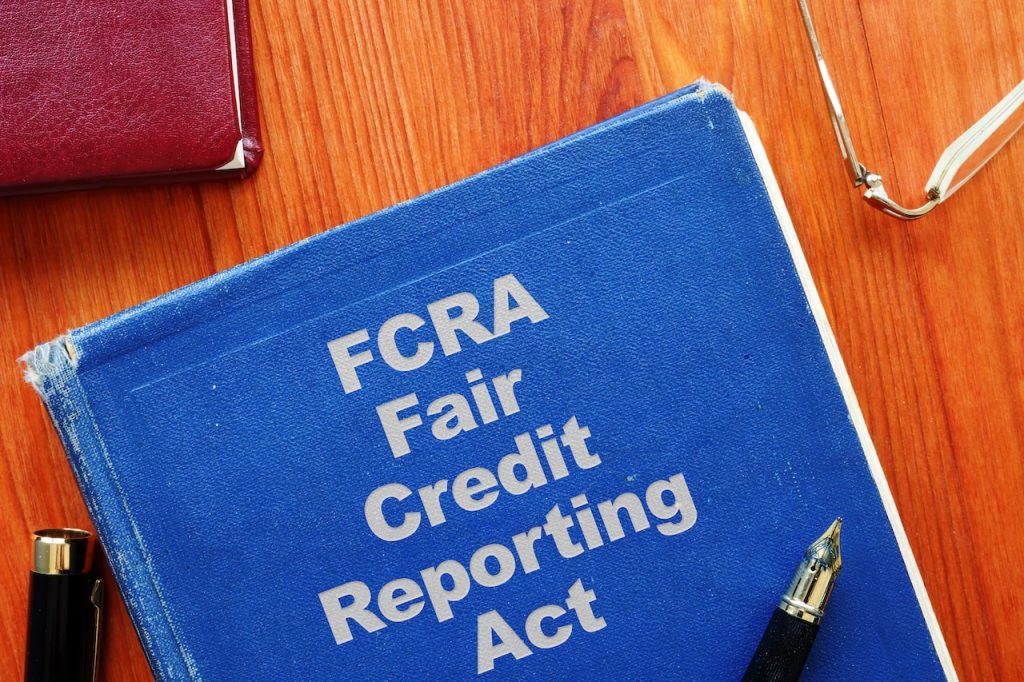Trust in Us
FCRA violations refer to violations of the Fair Credit Reporting Act (FCRA), a United States federal law that covering the collection, reporting and use of consumer credit information. The FCRA protects the accuracy, fairness, and privacy of the information contained in consumer credit reports.
Under the FCRA, common violations might include reporting false or outdated information, failing to notify a creditor about a debt-related dispute or failing to correct false information.
Some key areas covered under the FCRA include these:
Inaccurate or Incomplete Information: A credit reporting agency may report inaccurate or outdated consumer credit information that could harm the consumer’s credit score. They may neglect to correct such inaccurate information within a reasonable time frame, despite being notified. Related, reporting incomplete information about a consumer’s credit history could also be considered a FCRA violation.
- Unauthorized Access: Granting unauthorized parties access to a consumer’s credit report.
- Failure to Provide Free Annual Credit Reports: The FCRA mandates that consumers may receive a free annual credit report upon request; failure to provide consumers with this free annual report would be considered a FCRA violation.
- Failure to Comply with Identity Theft Provisions: Failing to comply with the FCRA’s provisions related to identity theft, e.g., failing to report fraudulent information on a consumer’s credit report.
- Lack of Consent: Gaining unauthorized access to a consumer’s credit report without proper consent, e.g., doing so for an employment background check.
- Failure to Provide Adverse Action Notices: When an adverse credit decision, such as a denial of employment or credit, is made, the entity making the decision is required under the FCRA to notify the consumer of such a decision with an adverse action notice that informs them of the reasons and their rights.
- Failure to Investigate Disputes: When a consumer disputes information on a credit report, the entity is required to conduct a reasonable investigation into the matter.
- Failure to Maintain Reasonable Procedures: Reasonable procedures to ensure that the accuracy and integrity of consumer credit information is maintained are required to be in place and followed.
- Failure to Provide Notices of Rights: Under the FCRA, consumers have certain rights and entities are required to notify consumers of these rights, e.g., the right to access their credit report or the right to dispute inaccuracies.
When you choose our firm, you can be confident that we will not only meet but exceed your expectations. We believe that communication is key, and we maintain open lines of dialogue with our clients throughout the entire legal process. We keep you informed and involved, ensuring that you understand the progress of your case and feel supported every step of the way.

Legal Help is Here
Of course, this is not an exhaustive list. If you’ve been on the receiving end of a violation under FCRA, you’re well aware of how stressful and overwhelming the experience can feel. That said, it’s also important to remember that not all practices related to collecting information about your credit or your debt would be considered violations of the law.
As with most areas of the law, this one can be nuanced. For this and other reasons, a great next step would be to seek out the expertise of an experienced debt defense attorney who can work together with you and help determine whether your experience might be considered a FCRA violation.
We’re here to help, so let us do what we do best. Together, we can address your debt as well as any FCRA violations that may have occurred.